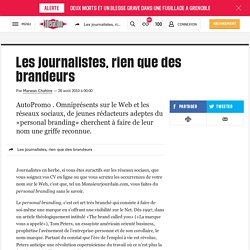

Why We Gave Our Students Droid Smartphones to Capture News. Education content on MediaShift is sponsored by Carnegie-Knight News21, an alliance of 12 journalism schools in which top students tell complex stories in inventive ways.

See tips for spurring innovation and digital learning at Learn.News21.com. On a cold fall night about 20 years ago I was standing in a phone booth alongside the Welland Canal. The deck of the lake freighter I was writing about was slowly sinking down as the lock level lowered. In front of me was a Radio Shack TRS-80 Model 100 computer with a faint 8-line LCD display. It was acoustically coupled to the grimy pay phone’s handset and was sputtering my copy at 300 characters per second back to my newsroom.
Now, two decades later, I want my students to have the same experience. Okay, I don’t want them to back a pig-slow file transfer in a race against a departing lake freighter. Droids for All Our intention is to have the students, where possible and appropriate, do as many aspects of their reporting on the phones. Related. Journalism Grads: 30 Things You Should Do This Summer. You could spend this summer working on your killer tan… or you could use the downtime to get heads up on the thousands of other grads competing for journalism jobs.

Use this checklist to improve your journalism skills and set yourself apart from the pack: 1. Start a blog and post at least twice a week 2. If you already have a blog, write a post that gets retweeted 20 times 3. 4. 5. 6. 7. 8. 9. 10. 11. Les journalistes, rien que des brandeurs. Journalistes en herbe, si vous êtes suractifs sur les réseaux sociaux, que vous soignez vos CV en ligne ou que vous scrutez les occurrences de votre nom sur le Web, c’est que, tel un Monsieurjourdain.com, vous faites du personal branding sans le savoir.

Le personal branding, c’est cet art très branché qui consiste à faire de soi-même une marque en s’offrant une visibilité sur le Net. Dès 1997, dans un article théologiquement intitulé «The brand called you» («La marque vous a appelé»), Tom Peters, un essayiste américain orienté business, prophétise l’avènement de l’entreprise-personne et de son corollaire, le nom-marque. Partant du constat que l’ère de l’emploi à vie est révolue, Peters anticipe une révolution copernicienne du travail où ce n’est plus la fonction qui fait l’homme mais l’inverse.
Dans un contexte d’individualisation et de développement des réseaux, il propose une sorte d’utopie libérale où le but est d’être «un agent libre dans une économie d’agents libres». Comment ?
Focus on 'what,' not 'where,' in planning your journalism career. So you want to do journalism but are worried about all the change hitting the craft? Do what digital pioneer and entrepreneur Elizabeth Osder has done: “I always tried to be about what I get to do rather than where I get to do it.” But the economic models just aren’t working for newspapers online, lamented one student attending USC Annenberg School of Journalism Director’s Forum.
Not true, said Osder, fresh off consulting work with Tina Brown’s just-launched “ The Daily Beast .” Plenty of people are making plenty of money online. (As if in confirmation, David Westphal , Annenberg’s executive in residence, noted that McClatchy right now makes more money online than it costs to pay all the editors and publishers in the company.) Here’s how to think about it, Osder told the group: “Start with the impact you want to have. “If I wanted to do that, I’d have gone to Marshall (USC’s business school),” a student groaned in reply.